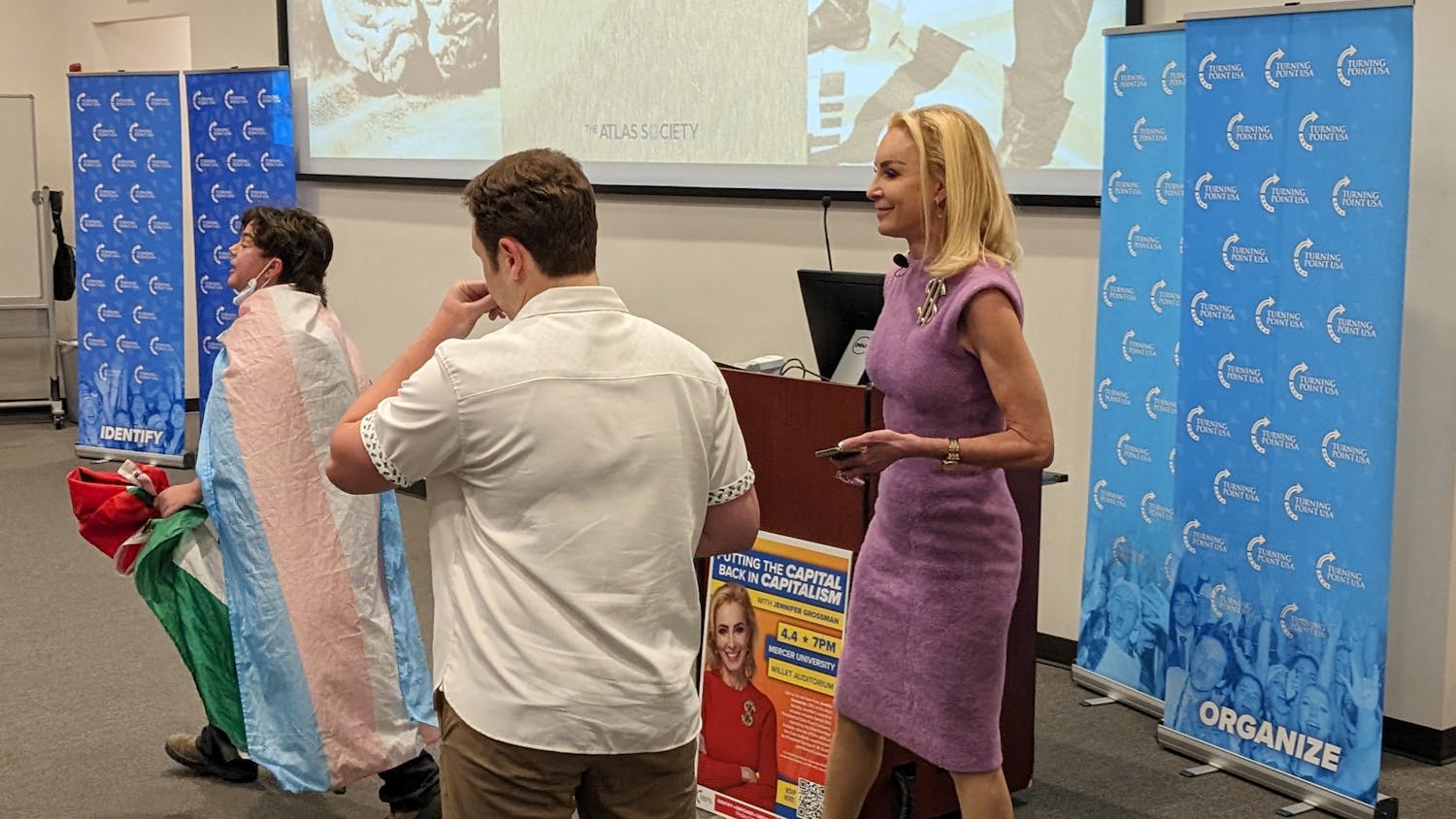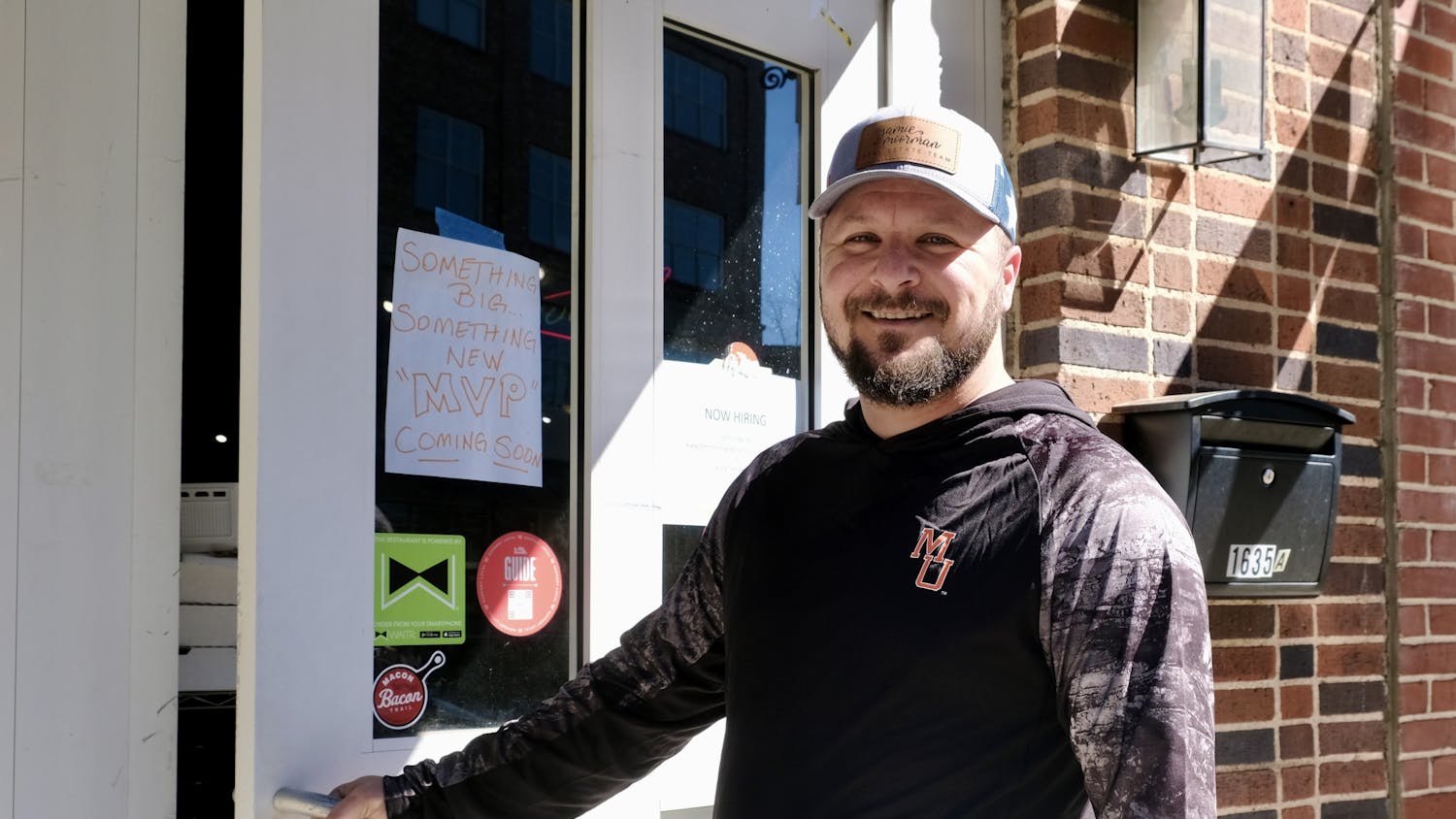Mercer University hosted the 25th annual Southern Intellectual History Circle last week. The Southern Intellectual History Circle is a gathering of Southern scholars to discuss intellectual trends of the history of the south and its literature.
The event began Thursday with a keynote lecture entitled “A Retrospective on the Southern Intellectual History Circle, 1988-2013.” Dr. Michael O’Brien, who is a professor of American Intellectual history at Cambridge University, gave the speech at the Woodruff House at 5 p.m. Each event hosted as part of the Southern Intellectual History Circle was free and open to the public for all those who desired to attend.
After the opening event on Thursday, the Southern Intellectual History Circle continued its events on Friday with three panel presentations in the Presidents Dining Room located in Mercer’s University Center.
Speakers at the first panel included Chair Dr. David Moltke-Hansen; Dr. Jane Dailey, a history professor at the University of Chicago; Dr. Susan Donaldson, an English and American Studies professor at The College of William and Mary; Dr. Michael Kreyling, an English Professor at Vanderbilt University; and Dr. Steven Stowe, an emeritus professor of history at Indiana University.
Their speeches were mainly response to the opening address on Thursday, and their panel ran from 9 a.m. to 11 a.m. Two more panels followed the first on Friday, each located in the President’s Dining Room. The second took place from 11:15 a.m. to 1:15 a.m. and the third taking place from 2:30 to 4:30 p.m.
Each panel featured a different set of professors who spoke on a variety of topics relating to Southern History. Some examples are the talks given by Dr. Jonathan Wells of Temple University titled “Charles Dickens, Slavery, and the American South”; and the talk given by Dr. Patricia Sullivan titled “What Happened to the Civil Rights Movement?”
Dr. Sullivan’s talk tracked the history of the Civil Rights Movement over the years it developed and what happened to it in later years. Her speech identified 1966 as the “critical year” of the Civil Rights Movement, saying it was “a time when a new set of forces would converge, produce a turning point towards reaction” and that “The evidence was written in Congressional debates, changing political record, and shifts in policy at the federal level and was reflected in cities across the country.”
Dr. Trudier Harris, an English professor from the University of Alabama, gave the final talk on Friday. The title of the talk was “From Realistic Scoundrel to Magically Real Hero: Martin Luther King in Katori Hall’s The Mountaintop.” She said in her paper “This paper is from the last chapter of my book on Martin Luther King heroism in African-American literature.”
She started her talk by saying “Since his death in 1968, Martin the King Junior has mostly been treated with reverence in African American literary works in which he is depicted, or in which his philosophy is invoked.”
Dr. Harris discusses the portrayal of King in a play titled “The Mountaintop” by Katori Hall. Dr. Harris describes the book’s portrayal of king as one in which “all of King’s weaknesses and human frailties get revealed.”
Dr. Harris describes the play as a “well executed exercise in jumbling the fires of rumor about a historical figure, then quenching those fires with King’s martyrdom.” According to Dr. Harris, the play portrays Martin Luther King as a flawed human being, who over the course of the play becomes the heroic figure more common portrayals represent.
The final, held on Saturday, featured a gallery talk given by Dr. Davis, English professor at Mercer University. The subject of his talk was “Hard Times on the Georgia Chain Gang: Photographs of John Spivak.”
The photographs were a collection focusing on the state of the South’s prisons, and the treatment of prisoners. The photos depicted brutal conditions that prisoners where once forced to live in. Dr. Davis’s talk was a relatively short speech that finished off the Southern Intellectual History Circle.




